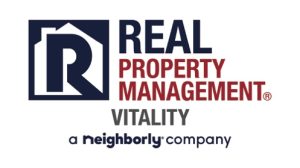Why Work Orders are important for property management
The Significance of Work Orders in Property Management
In property management, work orders are crucial in ensuring the’ smooth operation and maintenance of properties. A work order is a document that outlines the details of a specific task or repair that needs to be completed. It serves as a communication tool between property managers, maintenance staff, and tenants, ensuring everyone is on the same page regarding the necessary work. The significance of work orders in property management cannot be overstated, as they provide structure, accountability, and efficiency to the management process.
One of the primary reasons work orders are essential in property management is that they provide structure and organization. Without work orders, property managers would struggle to keep track of the numerous maintenance requests and tasks that arise daily. Property managers can prioritize and schedule the work by documenting each request or task in a work order. This ensures that no request falls through the cracks and that all necessary repairs or maintenance are addressed in a timely manner. Additionally, work orders provide a historical record of the work that has been completed, allowing property managers to track trends and identify recurring issues that may require further attention.
Furthermore, work orders are crucial for maintaining accountability in property management. When a tenant submits a maintenance request, it is essential to have a formal record of the request and the subsequent actions taken to address it. Work orders provide a paper trail that can be referenced in disputes or legal issues. They also hold maintenance staff accountable for completing the tasks within the specified timeframe. By having a documented record of work orders, property managers can ensure that all parties involved are fulfilling their responsibilities and meeting the expectations outlined in the lease agreements.
Benefits of Implementing Work Orders in Property Management
Implementing work orders in property management offers numerous benefits that contribute to property management operations’ overall efficiency and success. One of the key advantages is improved communication and transparency. Work orders serve as a clear and concise communication between property managers, maintenance staff, and tenants. By documenting the details of each task or repair in a work order, all parties involved have a shared understanding of what needs to be done, reducing the chances of miscommunication or misunderstandings. This transparency fosters a sense of trust and collaboration among stakeholders, leading to smoother operations and increased tenant satisfaction.
Another significant benefit of implementing work orders is the ability to track and analyze maintenance data. Work orders provide valuable data that can be used to identify trends, track costs, and make informed decisions regarding property maintenance. By analyzing the data collected from work orders, property managers can identify recurring issues, prioritize repairs based on urgency and cost, and allocate resources more effectively. For example, if multiple work orders are consistently submitted for plumbing issues in a building, property managers can proactively address the underlying problem rather than repeatedly responding to individual requests. This data-driven approach saves time and money and enhances the overall quality of property management services.
In conclusion, work orders are of utmost importance in property management because they provide structure, accountability, and efficiency. They serve as a communication tool, ensuring that all parties involved know the necessary work to be done. Work orders also contribute to stakeholder transparency and trust, improving collaboration and tenant satisfaction. Additionally, the data collected from work orders allows property managers to track trends, allocate resources effectively, and make informed decisions regarding property maintenance. Property managers can streamline their operations by implementing work orders, enhancing tenant experiences, and achieving greater success in managing properties.






